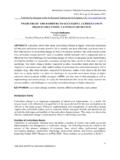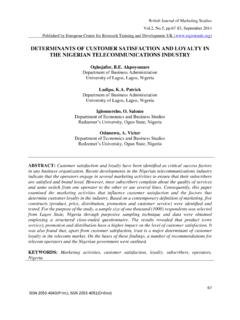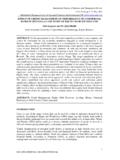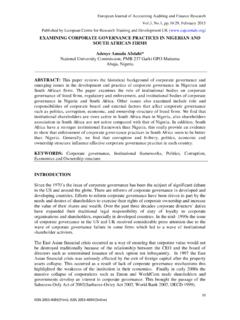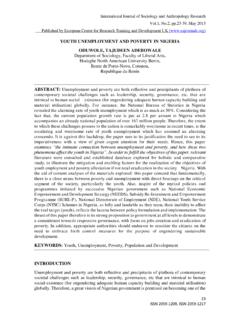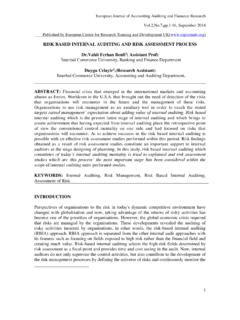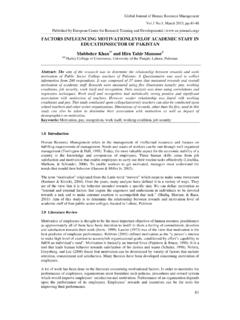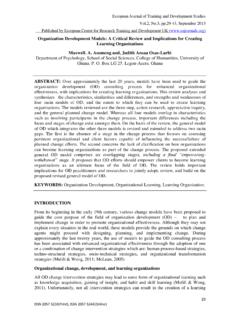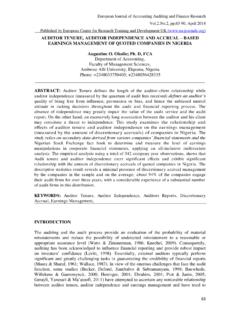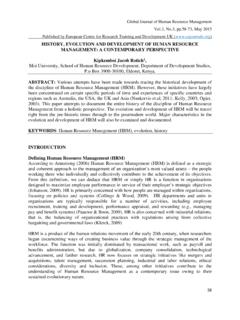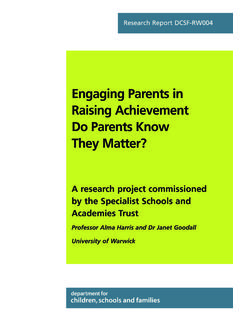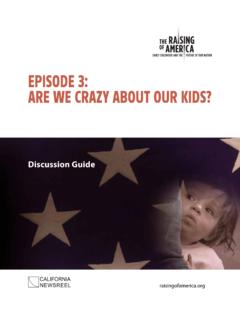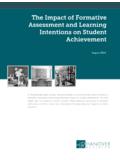Transcription of THE IMPACT OF RAISING PHONOLOGICAL …
1 International Journal of English Language Teaching , , , October 2017. ___Published by European Centre for Research Training and Development UK ( ). THE IMPACT OF RAISING PHONOLOGICAL AWARENESS ON IMPROVING. EFL LEARNERS READING COMPREHENSION: A CASE STUDY AT. PREPARATORY YEAR NAJRAN UNIVERSITY. Nadia A. Adam1 and Mohi Eddin Mohammed2. 1. Assist. Professor of ELT, Najran University, Saudi Arabia 2. Lecturer in Linguistics, Preparatory Year Deanship, Najran University, Saudi Arabia ABSTRACT: The study utilized experimental and descriptive approach to identify the IMPACT of RAISING PHONOLOGICAL awareness on improving EFL reading comprehension skill among Preparatory Year students at Najran University (NU). PHONOLOGICAL Awareness is an applied linguistic term which refers to the ability to hear and manipulate the sound structure of language. It is an encompassing term that involves working with the sounds of language at the word, syllable, and phoneme level and contains many processes.
2 The study is an attempt to identify the IMPACT of PHONOLOGICAL awareness training and gender on reading performance of preparatory year students at NU. The sample consisted of (160) students, (80) males and (80). females. PHONOLOGICAL Awareness Skills Test and Cronbach Alpha Coefficient utilized to measure progress in four PHONOLOGICAL awareness skills including word identification, word deletion, word blending and word rhyming while a reading passage. Pre- and post-Cloze Test applied to identify the reading levels of the participants. In addition, simple percentage and T- Test utilized to statically analyze the data. The results revealed that training on PHONOLOGICAL awareness skills significantly improved the reading performance of the students in the experimental group. KEYWORDS: PHONOLOGICAL Awareness, Efl Learners, Comprehension, Najran University INTRODUCTION. Reading is an indispensable skill in modern day societies, particularly in educational advancement of students since it provides access to written knowledge.
3 Therefore, impaired reading can affect the academic achievement and educational career of students. Reading is an activity characterized by the translation of symbols/letters into words and sentences that have meanings to the individual. The ultimate goal of reading is to be able to understand which can be accomplished through PHONOLOGICAL awareness. PHONOLOGICAL awareness is a broad skill that includes identifying and manipulating units and parts of oral language, such as words, syllables, onsets and rimes. Students who have PHONOLOGICAL awareness are able to identify and make oral rhymes, to clap out the number of syllables in a word, and to recognize words with the same initial sounds, such as 'money' and 'mother'. The literature on remediation and prevention of reading difficulties has provided evidence that PHONOLOGICAL awareness is an important component of early reading development. PHONOLOGICAL awareness is defined as the understanding of the sound structure of oral language.
4 Over the last decade, studies have established that PHONOLOGICAL deficits are a precursor to reading disabilities (Wagner et al., 1993). Students with weak PHONOLOGICAL awareness have difficulty understanding, that words can be broken into individual phonemes or acting on that knowledge. Weak PHONOLOGICAL awareness may lead to learning disabilities, as students do not 1. Print ISSN: ISSN 2055-0820(Print), Online ISSN: ISSN 2055-0839(Online). International Journal of English Language Teaching , , , October 2017. ___Published by European Centre for Research Training and Development UK ( ). know how to decode new words. Moreover, decoding problems lead to further difficulties in reading fluently and comprehension of written text. Statement of the problem Most of students who have passed their secondary school and have enrolled in the Preparatory Year Program (PYP) at NU have problems in mastering the English language reading comprehension skills, which affects their reading performance.
5 The current study focuses on the IMPACT of PHONOLOGICAL awareness on improving EFL reading comprehension among students. With the help of data collected from the students, the author will provide some suggestions to reduce future problems regarding reading comprehension skills. Objectives This study is an attempt to identify the IMPACT of PHONOLOGICAL awareness tasks on reading comprehension and skills among preparatory year students. It also aimed at identifying the differences between male and females, gender influence, in PHONOLOGICAL awareness. In addition to identifying students attitudes towards PHONOLOGICAL awareness tasks. Questions The main question of the study states: does RAISING PHONOLOGICAL awareness have an IMPACT on improving EFL reading comprehension skill among students? This leads to the following sub questions: 1. Do PHONOLOGICAL awareness tasks have an IMPACT on reading comprehension skill? 2. Do PHONOLOGICAL awareness tasks improved reading skills among students?
6 3. Does gender have a significant effect on developing reading skills during PHONOLOGICAL awareness training? 4. What are learners' attitudes towards PHONOLOGICAL awareness tasks? Hypothesis 1. PHONOLOGICAL awareness tasks have a positive IMPACT on reading comprehension skill. 2. Utilizing PHONOLOGICAL Awareness program in teaching reading comprehension improves students' reading skill. 3. There is no significant effect of gender on studying PHONOLOGICAL awareness skills on reading performance. 4. Students, who have studied PHONOLOGICAL awareness, acquired positive attitude towards PHONOLOGICAL Awareness program. The Development of PHONOLOGICAL Awareness Students begin to demonstrate PHONOLOGICAL Awareness through recognizing words as separate entities, such as 'What does that mean?' and syllables or rhymes; to be aware of how groups of sounds and words operate in spoken language, such as 'mat and pat' rhyme. They develop an awareness of individual sounds and can manipulate them, such as 'dad and dear'.
7 These 2. Print ISSN: ISSN 2055-0820(Print), Online ISSN: ISSN 2055-0839(Online). International Journal of English Language Teaching , , , October 2017. ___Published by European Centre for Research Training and Development UK ( ). individual sounds of language known as phonemes. An important link in developing PHONOLOGICAL awareness is to encourage students to use invented or temporary spelling. When students attempt to write a word, they must first listen to their own language and segments of the word sounds, and finally try to match sounds with letters. Students need some PHONOLOGICAL awareness to use invented spelling, but their exploration of sounds through writing helps them to discover more about how sounds and letters work in English and how to utilize this knowledge as they read. The Role of PHONOLOGICAL Awareness There are different levels of PHONOLOGICAL awareness within words, including syllables, onsets and rimes, and sounds. Recognizing this has important implications on supporting student development of PHONOLOGICAL awareness.
8 Good readers look for familiar letter patterns as a strategy when attempting to decode or spell unfamiliar words. In other words, they use familiar sound chunks from known words not just individual sounds. This chunking of sounds makes the reading and spelling process much more effective and efficient. These letter patterns are based on familiar syllable or rhyme patterns as well as sound clusters and individual sounds. This ability to look inside words for syllables, rhymes, and individual sounds when reading and spelling is based on the student's PHONOLOGICAL awareness. Students have to be able to segment, blend, and manipulate syllables, onset and rime, and sounds if they are going to be successful in using letter-sound knowledge effectively for reading and writing. The PHONOLOGICAL awareness skills of segmenting and blending are most highly correlated with beginning reading acquisition (Snow et al., 1998). PHONOLOGICAL and Phonemic Awareness: Phonemic awareness refers to the specific ability to focus on and manipulate individual sounds (phonemes) in spoken words.
9 Phonemes are the smallest units comprising spoken language. Phonemes combine to form syllables and words. For example, the word 'mat' has three phonemes: /m/ /a/ /t/. There are 44 phonemes in English, including sounds represented by letter combinations such as /th/. Acquiring phonemic awareness is important because it is the foundation of spelling and word recognition skills. Phonemic awareness is one of the best predictors of how well children will learn to read during the first two years of school. Students with lower levels of PHONOLOGICAL awareness are at risk of reading difficulty than do their classmates. The good news is that phonemic awareness and PHONOLOGICAL awareness can be developed through a set of activities. The Role of PHONOLOGICAL Awareness and Phonics Students with high level of PHONOLOGICAL awareness have the underlying framework in case of reading (decoding) and writing (encoding) when letter sound correspondences (phonics) are learned. Students with lower level of PHONOLOGICAL awareness can often learn phonics , the knowledge of letters and sounds, but they have difficulty using this knowledge as they read and spell.
10 So, if students are expected to use letters and sounds as a source of information or cueing system as they read and spell, and they have to, since English is based on an alphabetic system, it is important to ensure that they have a well-developed PHONOLOGICAL awareness. Students who have difficulty with this area of language (approximately 20 percent) will struggle through school in figuring out how sounds work in print. They will not be able to use sound knowledge effectively because they will not have the underlying ability to listen inside a word and play with the sounds they hear (Fitzpatrick, 1997). 3. Print ISSN: ISSN 2055-0820(Print), Online ISSN: ISSN 2055-0839(Online). International Journal of English Language Teaching , , , October 2017. ___Published by European Centre for Research Training and Development UK ( ). The PHONOLOGICAL process usually works unconsciously when we listen and speak. It is designed to extract the meaning of what is said, not to notice the speech sounds in the words.
